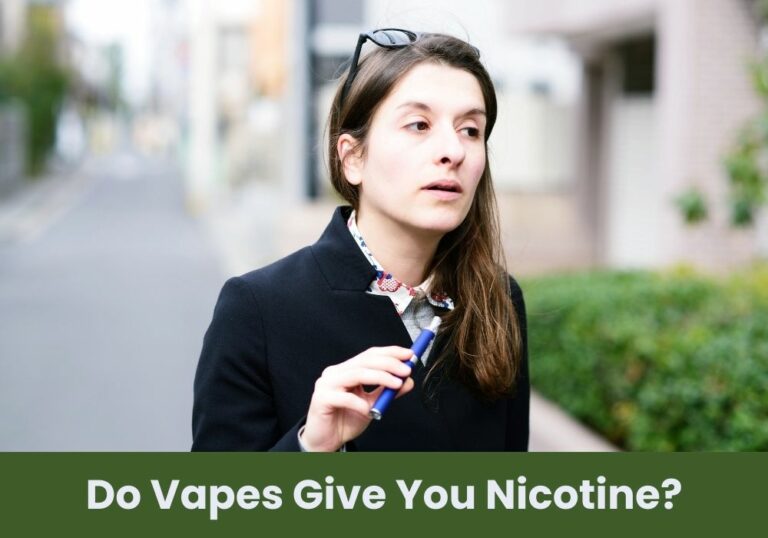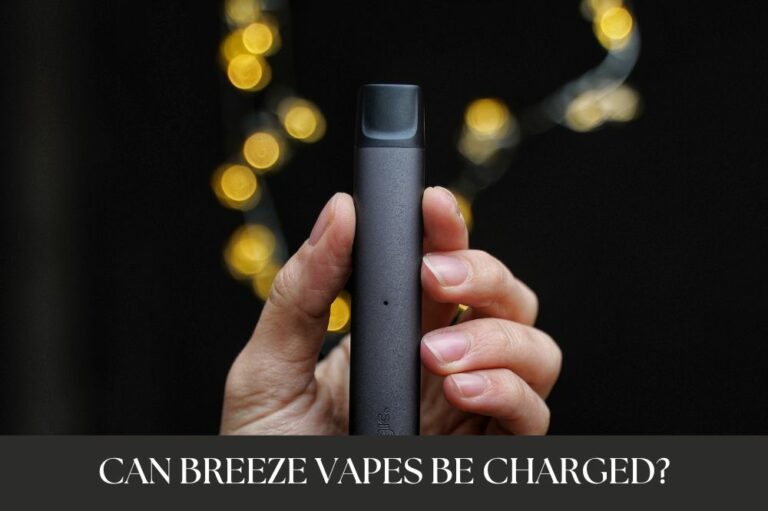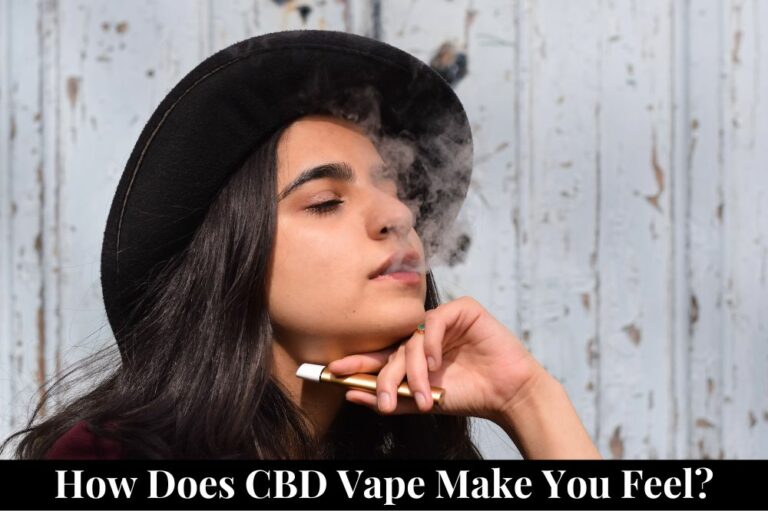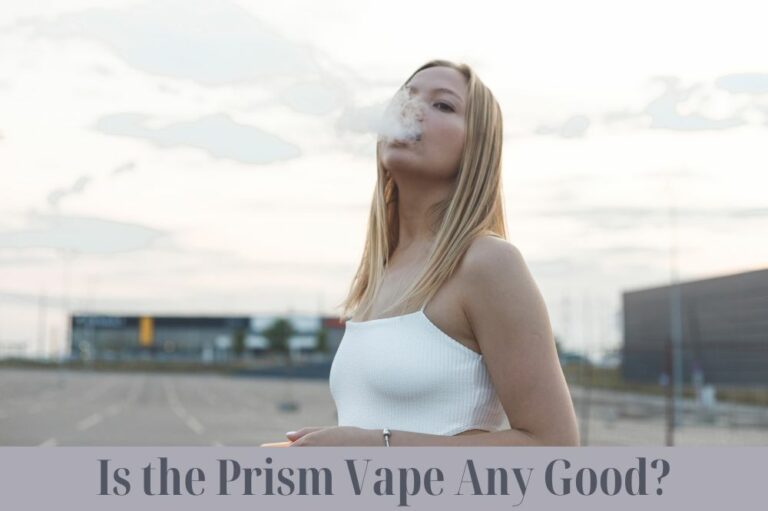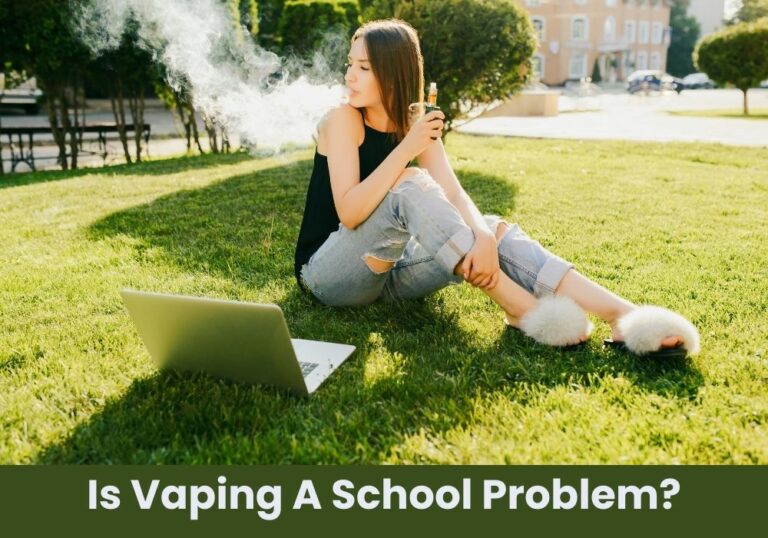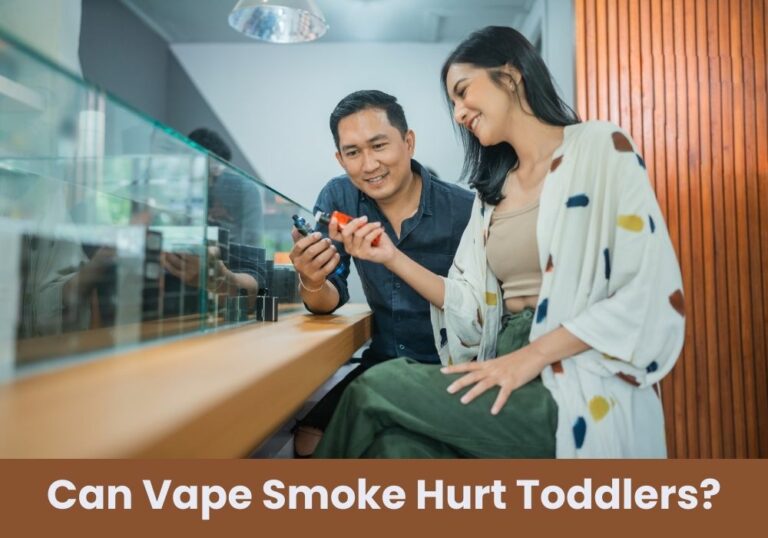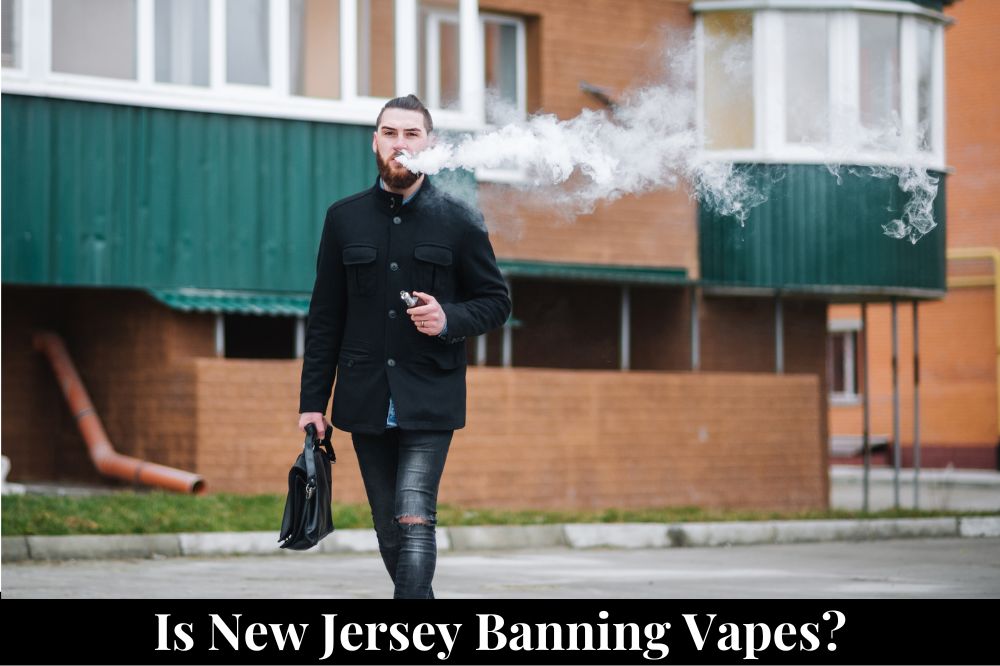
If you’re a vaper in New Jersey, you may be wondering if the state is banning vapes. The answer is yes, but with some important caveats. In January 2020, Governor Phil Murphy signed legislation making New Jersey the first state in the nation to impose a permanent ban on flavored vape products, including menthol. This means that you can no longer buy flavored vapes in New Jersey.
The legislation was signed in response to the growing concern about the health risks associated with vaping, particularly among young people. According to the New Jersey Department of Health, more than a quarter of high school students in the state reported using e-cigarettes in 2018. The ban is intended to help curb this trend by making it harder for young people to access flavored vapes, which are believed to be particularly appealing to this demographic.
It’s worth noting that the ban only applies to flavored vapes. You can still buy tobacco-flavored vapes in New Jersey, and the ban does not apply to other forms of electronic smoking devices, such as e-cigarettes, cigars, cigarillos, or pipes. However, it’s important to keep in mind that the laws around vaping are constantly evolving, so it’s a good idea to stay up to date on any changes that may affect you if you’re a vaper in New Jersey.
Current Vape Laws in New Jersey
If you’re a vaper living in New Jersey, it’s important to be aware of the current laws surrounding vaping. As of October 2023, New Jersey has some of the strictest vape laws in the country.
One of the most notable laws is the permanent ban on flavored vape products, including e-liquids. This ban was signed into law by Governor Murphy and makes New Jersey the first state in the nation to impose a permanent ban on flavored vapes Healthy New Jersey. It’s important to note that this ban includes all flavors, not just fruity or sweet ones.
Additionally, it is illegal to sell or give tobacco or vapor products to persons under 21 years of age in New Jersey. This law is in line with the federal Tobacco 21 law, which raises the minimum age to purchase tobacco and vapor products to 21 years old.
New Jersey has also implemented restrictions on the advertising of vapor products. It is prohibited to advertise vapor products on NJ Transit Public Health Law Center. Furthermore, liquid nicotine must be sold in child-resistant containers CASAA.
SPIRITBAR Katana BP10000
- Slender, leather-textured body reminiscent of a katana handle for an authentic samurai feel
- Unique samurai-inspired e-liquid flavor - fruity yet not too sweet, with a luxurious, elegant aroma
- Powerful 650mAh rechargeable battery for extended vaping time
- Large 18ml e-liquid capacity and 10,000 puff capacity
- Advanced mesh coil and e-liquid & power display screens for optimal vaping experience
The special juice captures the essence of the samurai spirit with its rich, smoothly pulsating flavor that brings new satisfaction with every puff. The device's slender, leather-textured design evokes the grip of a samurai's katana, making this product a perfect choice for beginner vapors.
It’s important to note that container e-liquids may only be sold at retail by licensed specialty vapor businesses Public Health Law Center. This means that you cannot purchase e-liquids from convenience stores or other retailers that do not specialize in vaping products.
Overall, New Jersey has implemented strict laws surrounding vaping, with a permanent ban on flavored vape products being one of the most notable. It’s important to be aware of these laws and to follow them to avoid any legal consequences.
Proposed Changes
New Jersey has been at the forefront of the fight against vaping, and there have been several proposed changes to the state’s laws regarding vaping in recent years. In 2020, Governor Phil Murphy signed a law banning flavored e-cigarette, or vaping, products in New Jersey. This law made New Jersey the first state in the nation to impose a permanent ban on flavored vape products [1].
SPIRITBAR Jack’s Flask 9000 Puffs
- Stylish pirate flask-shaped body providing an exciting vaping experience
- Delivering up to 9000 puffs per device
- 20ml e-liquid capacity with 50mg nicotine strength for satisfying throat hit
- Specialized pirate-themed e-juice flavors for rich, swirling taste
- Premium mesh coil optimizes flavor profile for maximum vaping enjoyment
This disposable vape captures the daring spirit of the high seas with its flask styling and signature pirate e-juice flavors. The extraordinary battery life provides 9000 indulgent puffs for extended vaping pleasure. Live boldly and freely with the Jack's Flask - a legendary vaping experience fit for a pirate's adventures.
However, this law did not include a ban on menthol cigarettes. There was a plan to add a menthol cigarette ban at the time, but it was put on hold [1]. Now, New Jersey is moving closer to banning menthol cigarettes as well. Lawmakers in the state are currently considering a bill that would ban the sale of menthol cigarettes in New Jersey [1].
The proposed ban on menthol cigarettes in New Jersey has been met with mixed reactions. Supporters of the ban argue that it will help to reduce smoking rates and improve public health. They point to studies that have shown that menthol cigarettes are more addictive and harder to quit than regular cigarettes [1].
Opponents of the ban argue that it will lead to an increase in black market sales of menthol cigarettes and that it will disproportionately affect minority communities. They also argue that the ban is an infringement on personal freedom and that adults should be able to make their own decisions about whether or not to smoke menthol cigarettes [1].
Overall, the proposed ban on menthol cigarettes in New Jersey is a controversial issue that is still being debated by lawmakers and the public. If the ban is passed, it will be interesting to see how it affects smoking rates in the state and whether or not it leads to an increase in black market sales of menthol cigarettes.
Public Reactions
Since the announcement of the ban on flavored vape products in New Jersey, there have been mixed reactions from the public. Here are some of the reactions organized by different groups:
Vape Users
Many vape users are unhappy with the ban, as it limits their choices and may force them to go back to smoking traditional cigarettes. Some have expressed concern that the ban may lead to an increase in black market sales of flavored vape products, which could be dangerous due to the lack of regulation and quality control.
Non-Vape Users
Non-vape users seem to be more supportive of the ban, as they believe it will help reduce the number of young people who start vaping. They are also concerned about the potential health risks associated with vaping, especially in light of recent reports of lung illnesses linked to vaping.
Business Owners
Business owners who sell vape products are understandably concerned about the impact of the ban on their sales. Some have criticized the ban as being too broad, as it includes all flavored vape products, not just those that are marketed to children. Others have expressed frustration with the lack of clear guidelines on how to comply with the ban, which has caused confusion and uncertainty for many businesses.
Overall, the ban on flavored vape products in New Jersey has sparked a lively debate among different groups, with some supporting the ban as a necessary step to protect public health, while others see it as an unnecessary restriction on personal freedom.
SPIRITBAR Katana BP10000
- Slender, leather-textured body reminiscent of a katana handle for an authentic samurai feel
- Unique samurai-inspired e-liquid flavor - fruity yet not too sweet, with a luxurious, elegant aroma
- Powerful 650mAh rechargeable battery for extended vaping time
- Large 18ml e-liquid capacity and 10,000 puff capacity
- Advanced mesh coil and e-liquid & power display screens for optimal vaping experience
The special juice captures the essence of the samurai spirit with its rich, smoothly pulsating flavor that brings new satisfaction with every puff. The device's slender, leather-textured design evokes the grip of a samurai's katana, making this product a perfect choice for beginner vapors.
Impact on Health
If you are a vaper in New Jersey, you may be wondering how the state’s ban on flavored vape products will affect your health. While the ban is aimed at reducing the appeal of vaping to young people, it may also have some health benefits for vapers of all ages.
One major concern with vaping is the risk of lung illness. According to the New Jersey Department of Health, there have been multiple reports of severe lung illness in people who report vaping. While cases in New Jersey have been primarily reported among persons under the age of 35, anyone who vapes is at risk for lung illness. The ban on flavored vape products may reduce the number of people who start vaping, which could ultimately lead to fewer cases of lung illness.
In addition to lung illness, vaping has been linked to other health problems, including heart disease and cancer. While more research is needed to fully understand the long-term effects of vaping, the ban on flavored vape products may help reduce the risk of these and other health problems.
Overall, while the ban on flavored vape products may be inconvenient for vapers, it could ultimately have a positive impact on their health. If you are a vaper in New Jersey, it is important to stay informed about the latest developments in the state’s vaping laws and to take steps to protect your health.
Impact on Economy
The vaping industry has had a significant impact on New Jersey’s economy. In 2018, the industry’s total economic impact was more than $565 million, and it created 2,119 direct vaping-related jobs, generating over $91 million in wages [1]. Further, in 2018, New Jersey received more than $41 million in state taxes attributable to e-cigarettes and vaping devices [1].
The recent ban on flavored vape products, including menthol, has the potential to impact the state’s economy. The vaping industry has already seen a decline in sales due to increased regulations and taxes. With the ban on flavored products, it is expected that sales will further decrease, potentially leading to job losses and decreased tax revenue for the state.
However, proponents of the ban argue that the health benefits of reducing youth vaping outweigh the economic impact. Vaping has been linked to numerous health problems, including lung damage, addiction, and increased risk of heart attack and stroke. By reducing youth vaping, the state can potentially reduce healthcare costs associated with these health problems.
Overall, the impact of the ban on the vaping industry’s economic impact remains to be seen. However, it is clear that the ban is a significant step in reducing youth vaping and potentially improving public health in New Jersey.
References
- [1] “New Jersey Legislation Would Allow for Sales of Flavored Vape Products …” THR101, 2020. [Online]. Available: https://www.thr101.org/research/2020/new-jersey-legislation-would-allow-for-sales-of-flavored-vape-products-hefty-licensing-fee. [Accessed: 19-Oct-2023].
Legislative Process
Bill Proposal
In January 2020, Governor Phil Murphy signed a bill that made New Jersey the first state in the nation to impose a permanent ban on flavored vape products. The bill, known as S3265, prohibits the sale and distribution of flavored vape products, including menthol. The bill also prohibits the sale of menthol cigarettes and the sale or distribution of flavored electronic smoking devices and related products.
Voting Process
The bill was proposed in the New Jersey Legislature and was sponsored by Senators Joseph Vitale and Shirley Turner. The bill was introduced on November 14, 2019, and passed both the Senate and the Assembly on January 13, 2020. Governor Murphy signed the bill into law on January 21, 2020.
Implementation
The ban on flavored vape products went into effect on April 20, 2020. Retailers were given 30 days to remove all flavored vape products from their shelves. The ban does not apply to tobacco or menthol-flavored products.
Retailers who violate the ban can face fines of up to $1,000 for the first offense, $2,000 for the second offense, and $5,000 for each subsequent offense. The state has also set up a hotline for individuals to report violations of the ban.
Overall, the legislative process for the ban on flavored vape products in New Jersey was a relatively quick one. The bill was proposed, passed through the Legislature, and signed into law within a few months. The ban has been in effect for over a year and has been enforced by the state.
Comparison with Other States
New Jersey is not the only state that has implemented regulations on vaping. Many other states have also passed laws to regulate the use of e-cigarettes and vaping products. Here is a comparison of some of the regulations in place in other states:
- California: California has banned the sale of flavored e-cigarettes and vaping products. In addition, the state has raised the minimum age to purchase tobacco and vaping products to 21.
- Massachusetts: Massachusetts has banned the sale of all flavored tobacco and vaping products, including menthol. In addition, the state has implemented a 75% excise tax on all e-cigarettes and vaping products.
- New York: New York has banned the sale of flavored e-cigarettes and vaping products. In addition, the state has raised the minimum age to purchase tobacco and vaping products to 21.
- Rhode Island: Rhode Island has banned the sale of all flavored tobacco and vaping products, including menthol. In addition, the state has implemented a 40% tax on all e-cigarettes and vaping products.
- Texas: Texas has implemented a minimum age requirement of 21 to purchase tobacco and vaping products. In addition, the state has banned the sale of e-cigarettes and vaping products to anyone under the age of 21.
These are just a few examples of the regulations that other states have put in place to regulate the use of e-cigarettes and vaping products. It is important to note that the regulations in each state can vary significantly, so it is important to check the specific regulations in your state if you are unsure about what is allowed.
Overall, it is clear that many states are taking steps to regulate the use of e-cigarettes and vaping products, and New Jersey is no exception. While the regulations in each state may be different, the goal is the same: to protect public health and prevent young people from becoming addicted to nicotine.
Expert Opinions
According to NJ.com, two experts have spoken out against the idea of banning vaping products. They argue that the ban would be unethical because it would force people to choose between smoking cigarettes or going without nicotine altogether. The experts point out that vaping is less harmful than smoking and that it could be a useful tool for smokers who are trying to quit.
However, not everyone agrees with this viewpoint. As NorthJersey.com reports, there are concerns about the impact of vaping on young people. Some experts argue that flavored vaping products are particularly appealing to teenagers and could lead to nicotine addiction. They believe that a ban on flavored vaping products could help to reduce the number of young people who start vaping.
Despite these differing opinions, the state of New Jersey has taken action to regulate vaping products. As CBS News reports, the state has moved one step closer to banning the sale of flavored e-cigarettes. Critics of the proposed ban argue that it could push people towards black-market sellers, but supporters believe that it could help to reduce the number of young people who start vaping.
Overall, there are strong arguments on both sides of the debate about vaping. While some experts believe that a ban on vaping products would be unethical, others argue that it could help to reduce the number of young people who start using nicotine. As the debate continues, it will be important to consider the evidence and opinions from all sides before making any decisions about the regulation of vaping products.



